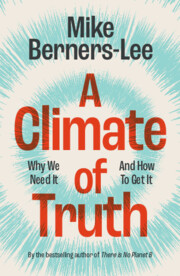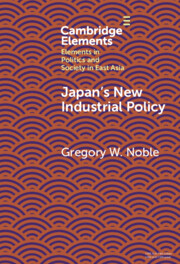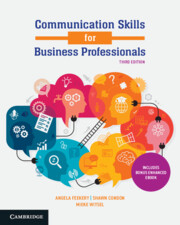Refine search
Actions for selected content:
161 results

Making and Breaking the Rules in Business and Human Rights
-
- Published online:
- 13 December 2025
- Print publication:
- 22 January 2026
Intimacy at Scale: Taylor Swift’s Showgirl Era
- Part of
-
- Journal:
- Public Humanities / Volume 1 / 2025
- Published online by Cambridge University Press:
- 12 December 2025, e164
-
- Article
-
- You have access
- Open access
- HTML
- Export citation
1 - Democracy and Governance
- from Part I - Politics at the Apex
-
- Book:
- Democracy and Inequality in India
- Published online:
- 11 October 2025
- Print publication:
- 30 October 2025, pp 15-63
-
- Chapter
- Export citation
Women’s Livelihood and Status Struggles in Tabora after the End of Slavery, 1920s–60
-
- Journal:
- The Journal of African History / Volume 66 / 2025
- Published online by Cambridge University Press:
- 28 October 2025, e24
-
- Article
-
- You have access
- Open access
- HTML
- Export citation
8 - International Organizations as Sellers of Goods and Services
-
-
- Book:
- International Organizations Engaging the World
- Published online:
- 09 October 2025
- Print publication:
- 23 October 2025, pp 150-168
-
- Chapter
-
- You have access
- Open access
- HTML
- Export citation
Chapter 10 - ‘We Must Pretend to Follow the Laws’
- from Part II - Actors
-
-
- Book:
- Colonialism and the EU Legal Order
- Published online:
- 14 October 2025
- Print publication:
- 18 September 2025, pp 231-246
-
- Chapter
-
- You have access
- Open access
- HTML
- Export citation
30th year birthday celebration of the journal of management and organization: Contributions and future directions
-
- Journal:
- Journal of Management & Organization , First View
- Published online by Cambridge University Press:
- 08 September 2025, pp. 1-9
-
- Article
-
- You have access
- Open access
- HTML
- Export citation
Chapter 1 - Introduction
-
-
- Book:
- Questioning Conventional Assumptions of Competition Dynamics
- Published online:
- 07 May 2025
- Print publication:
- 21 August 2025, pp 1-15
-
- Chapter
- Export citation
Chapter 10 - Bringing Economics and Business into educational settings
- from Part II - HASS concepts and sub-strands
-
-
- Book:
- Making Humanities and Social Sciences Come Alive
- Published online:
- 02 August 2025
- Print publication:
- 14 August 2025, pp 171-190
-
- Chapter
- Export citation
Chapter 6 - Multilevel Marketing Groups
- from Section 1 - Typology
-
-
- Book:
- A Clinical and Forensic Guide to Cults and Persuasive Leadership
- Published online:
- 19 June 2025
- Print publication:
- 03 July 2025, pp 118-131
-
- Chapter
- Export citation
Between a Rock and a Hard Place: Why Labor (Partially) Relinquished Its Institutional Resources in Belgium and the Netherlands
-
- Journal:
- Comparative Studies in Society and History / Volume 67 / Issue 3 / July 2025
- Published online by Cambridge University Press:
- 08 April 2025, pp. 547-569
-
- Article
-
- You have access
- Open access
- HTML
- Export citation

A Climate of Truth
- Why We Need It and How To Get It
-
- Published online:
- 27 March 2025
- Print publication:
- 27 March 2025
4 - The Middle Layer of the Polycrisis
-
- Book:
- A Climate of Truth
- Published online:
- 27 March 2025
- Print publication:
- 27 March 2025, pp 91-124
-
- Chapter
- Export citation
9 - Getting Truth into Business
-
- Book:
- A Climate of Truth
- Published online:
- 27 March 2025
- Print publication:
- 27 March 2025, pp 193-211
-
- Chapter
- Export citation
The Threat to Indonesian Democracy in the New Gilded Age of Trump
-
- Journal:
- Asia-Pacific Journal / Volume 15 / Issue 12 / June 2017
- Published online by Cambridge University Press:
- 14 March 2025, e2
-
- Article
-
- You have access
- Open access
- Export citation

Japan's New Industrial Policy
-
- Published online:
- 07 March 2025
- Print publication:
- 03 April 2025
-
- Element
- Export citation
13 - The Parable of the Pounds (Lk 19:1–27)
-
- Book:
- Luke's Unique Parables
- Published online:
- 28 February 2025
- Print publication:
- 06 March 2025, pp 155-172
-
- Chapter
- Export citation

Communication Skills for Business Professionals
-
- Published online:
- 25 February 2025
- Print publication:
- 15 January 2025
-
- Textbook
- Export citation
Seeking friends and influencers: business and labor groups lobbying in the Chilean congress
-
- Journal:
- Business and Politics / Volume 26 / Issue 4 / December 2024
- Published online by Cambridge University Press:
- 21 October 2024, pp. 665-683
-
- Article
- Export citation
Why business adoption of quantum and AI technology must be ethical
-
- Journal:
- Research Directions: Quantum Technologies / Volume 2 / 2024
- Published online by Cambridge University Press:
- 30 September 2024, e4
-
- Article
-
- You have access
- Open access
- HTML
- Export citation
